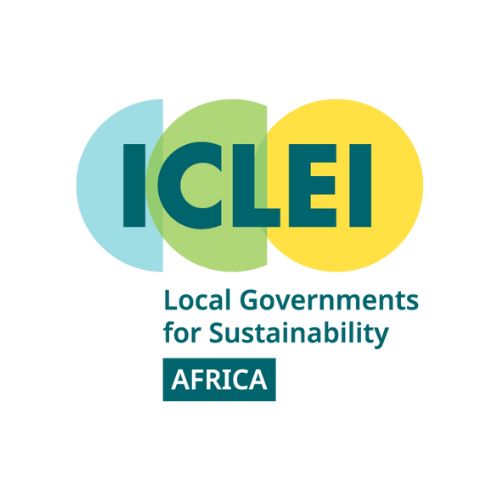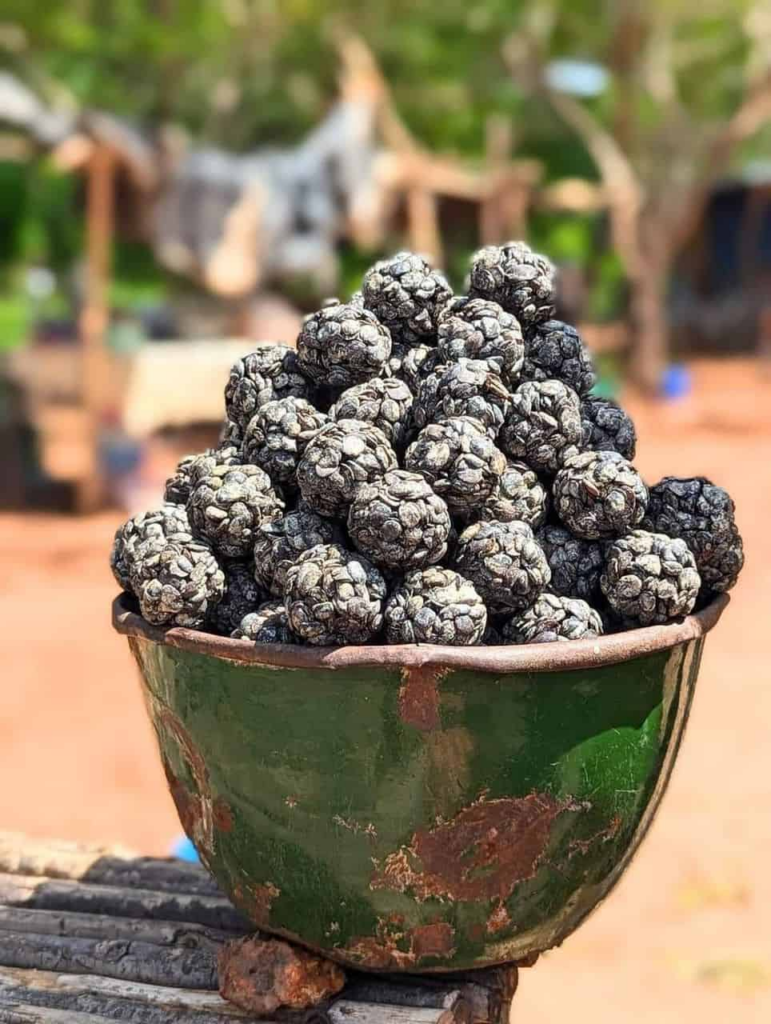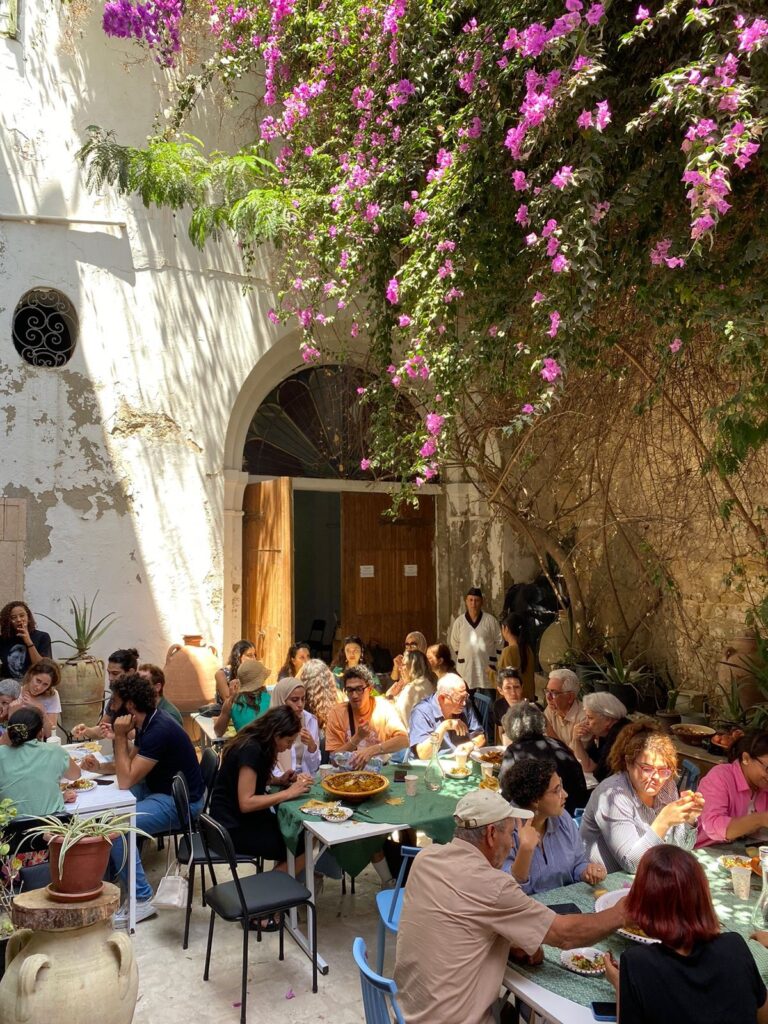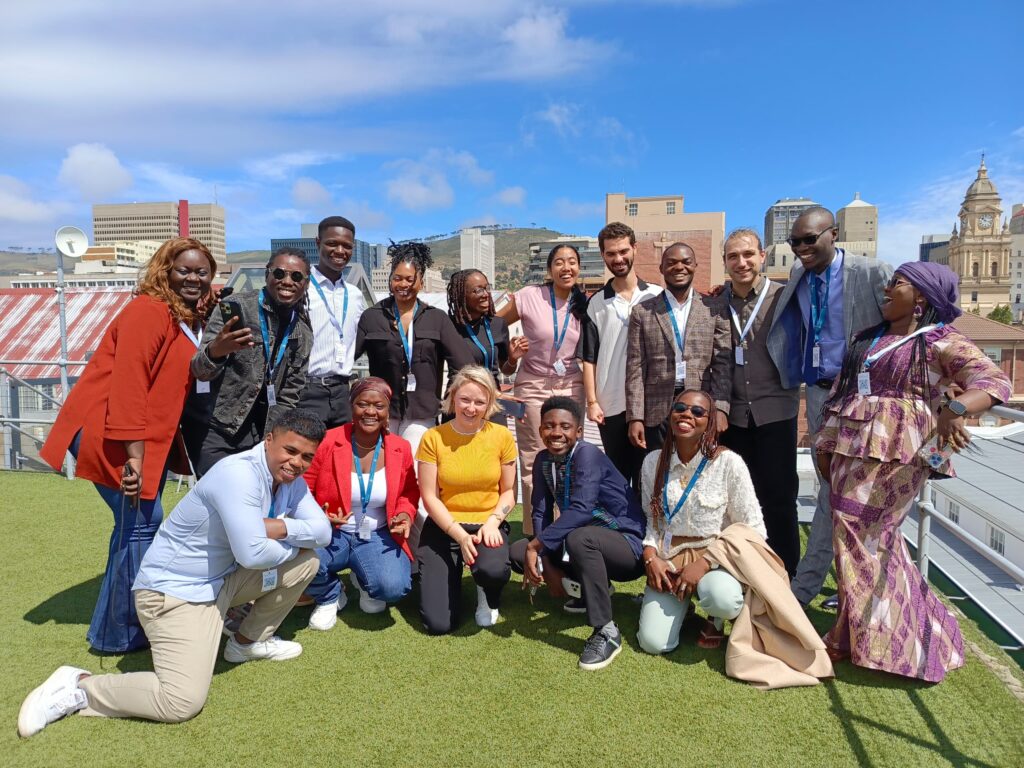Home » Explore the latest project news » AfriFOODlinks Youth: Nurturing the future of urban food systems
AfriFOODlinks Youth: Nurturing the future of urban food systems
What does it take to set in motion change for a better life and a better future #ThroughFood?
Global food systems are being pushed to their limits. Between climate change, urbanisation, and growing inequalities, it’s becoming harder for many people to access healthy, affordable, and nutritious food. The 2024 World Food Day theme—“Right to Foods for a Better Life and a Better Future”—puts this challenge front and centre, reminding us that access to nutritious, climate resilient and culturally appropriate food is not a luxury but a basic human right.
In the face of these challenges, AfriFOODlinks is working across 15 African and 5 European cities, transforming urban food systems from the ground up. And at the heart of this effort? Young people. Through its Youth Ambassadorship Programme, AfriFOODlinks is giving young leaders the tools to drive real change in their cities, from increasing access to nutritious food to reshaping how communities think about food systems.
Christine Bonareri from Kisumu City:
“My vision for my city’s food system is a thriving, sustainable network that supports local farmers, fosters community engagement, and strengthens food security.”
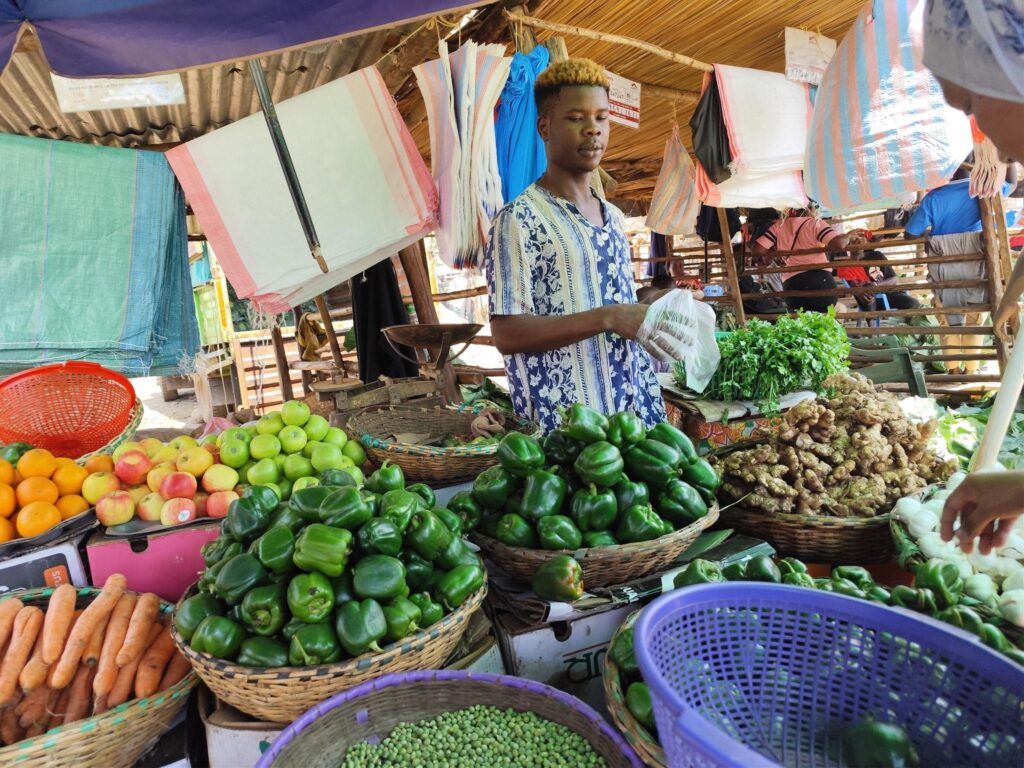
A young vendor displays fresh fruit and vegetables at an open-air market in Kisumu, Kenya. AfriFOODlinks/Christine Bonareri Morara
The youth ambassadors are driving conversation on the ground and online about AfriFOODlinks, mobilising their communities and bringing energy to the task of reimagining food systems. Their work doesn’t stop at theory—they’re on the ground, creating networks, leading city-level activations, and pulling people into the conversations about what they think are important urban food systems issues.
Take Farida Tiemtore from Ouagadougou, for instance:
‘My vision for my city’s food system is that of a dynamic, sustainable and inclusive ecosystem, where every individual has access to healthy, nutritious and culturally appropriate food, while respecting natural resources and supporting local producers.’
For Farida, it’s clear: food systems must serve everyone, and her work shows how local efforts can foster global change.
A display of Soumbala, also known as Kolgo, a traditional Burkinese condiment made from néré seeds in Ouagadougou, Burkina Faso. AfriFOODlinks/Farida Sonia Timetore
Overcoming Barriers and Driving Change
Transforming food systems isn’t without its challenges. Urban environments often have fragmented governance structures, making it hard to coordinate efforts across different cities and communities. Add in socio-economic disparities and cultural differences, and it’s clear that youth ambassadors have their work cut out for them. But they aren’t deterred.
Many of the youth ambassadors’ stories require them to engage with marginalised groups, like women fish-mongers in Bukavu and young mothers selling vegetables while carrying young children on their backs. Through these interactions the youth ambassadors learn about the challenges the vendors face and their stories advocate for the readers to deliberately choose to support these businesses because of the direct impact they have on supporting livelihoods. These youth stories also recognise the essential role of informal vendors in bringing affordable fresh produce into cities, making fruits and vegetables more economically and geographically accessible
Building Towards a Brighter Future
Across Africa and Europe, youth ambassadors are leading city-level activations that bring together diverse groups of people to tackle food security challenges. From market tours to environmental workshops, these activities are creating meaningful dialogue, driving solutions, and reshaping local food systems.
Sindile Kamlana from Cape Town has a similar vision:
“My vision for my city’s food system is to reorient agricultural priorities from producing high quantities of food to producing healthy food, sustainably intensify food production, and ensure strong governance of land and oceans.”
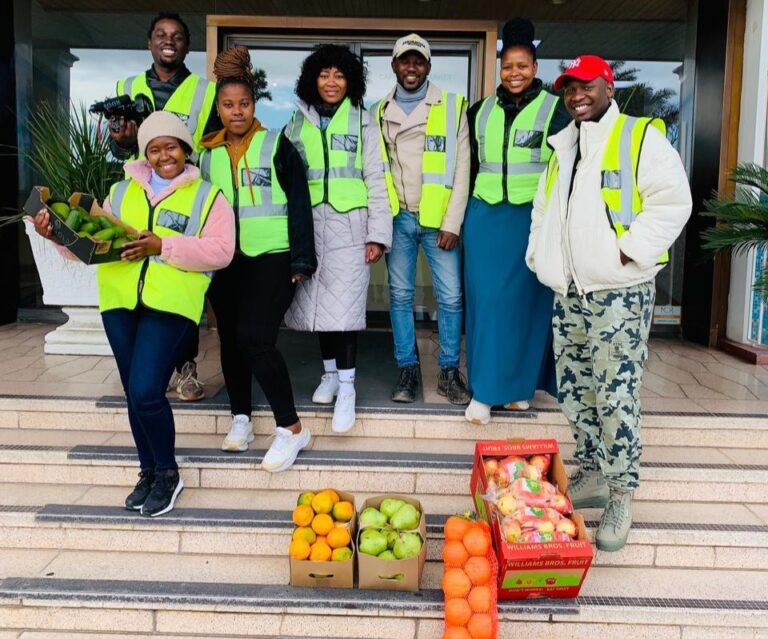
A tour of the Epping Food market organised by youth ambassador Sindile Kamlana with your activists. The Cape Town Market is an important fresh produce market that thousands of informal traders rely on to earn a living in Cape Town. AfriFOODlinks/Sindile Kamlana
Telling Stories, Changing Narratives
One of the most powerful aspects of AfriFOODlinks’ approach is how it amplifies the voices of people, often surviving on the margins of urban food systems, who are living and breathing these challenges. Each ambassador brings their own experience, their own perspective, and their own solutions in deciding what kinds of stories to tell. Their curatorial choices open up opportunities for often less heard stories to be told. These individual vignettes contribute to a better, more well-rounded meta-story of what our urban food systems are like for the everyday person. These stories aren’t just local either—they form part of a global narrative around food security, sustainability, and equity.
For Fernando Sozinho from Quelimane, inclusivity is the goal:
“My vision for my city’s food system is an inclusive system where everyone has access to food.
By developing stories about people that inspire them in their food systems, these ambassadors are not only raising awareness but also building a network of changemakers who are committed to ensuring that access to nutritious food is a right upheld for all.
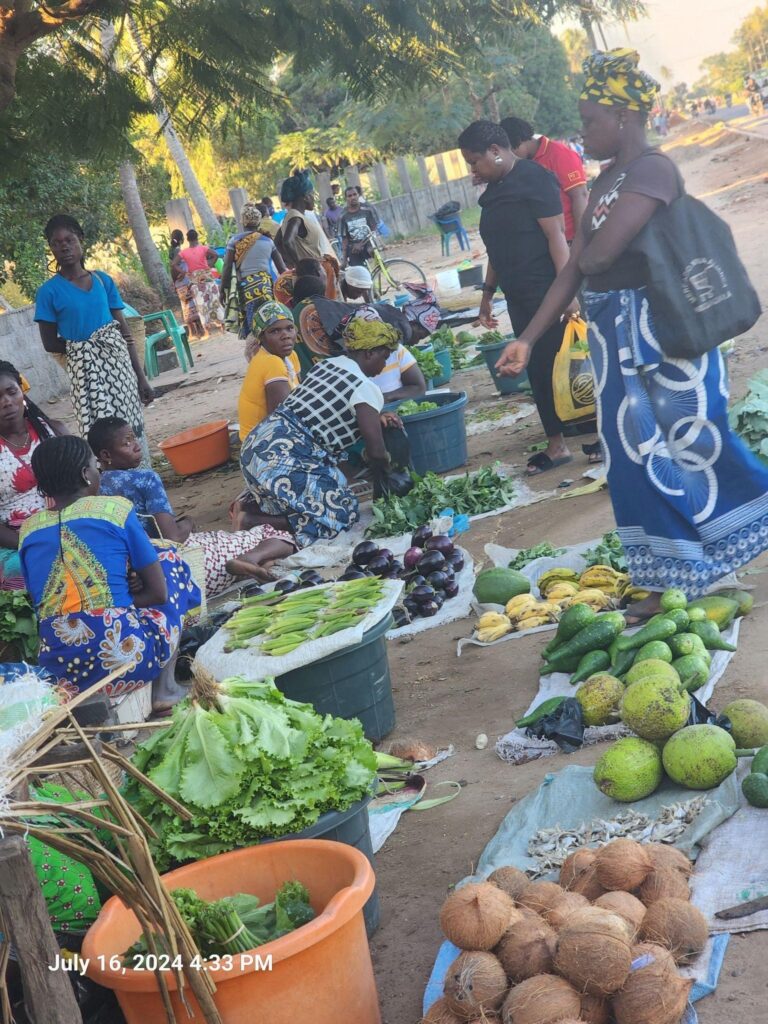
“Fresh food markets are not built, they emerge”. Fruits and vegetables are displayed along a street by vendors in Quelimane, Mozambique. AfriFOODlinks/Fernando Sozinho
Looking Ahead: A More Sustainable Tomorrow
As AfriFOODlinks grows, so does the impact of its youth ambassadors. With 15 African ambassadors already engaged and their European counterparts soon joining, the programme is expanding and evolving. So far, they’ve created 27 completed stories and hosted 9 city-level activations—but this is only the beginning.
For Adel Azouni from Tunis, the goal is clear:
‘My vision for my city’s food system is the crafting of a balanced, healthy and sustainable food basket.’
At L’Art Rue researchers, film makers, students, practitioners in non-government organisations and family members and city officials gather to watch Couscous: Seeds of Dignity. The film screening and shared lunch was coordinated and hosted by Adel Azouni, AfrFOODlinks youth ambassador to Tunis, Tunisia.
The youth ambassadors are planting seeds that future work, research and change-making can be nurtured from. By doing so, they’re not only contributing to SDG 2 (Zero Hunger) but also creating a blueprint for how communities can come together in the face of increasingly complicated urban food systems challenges. By encouraging these young leaders to connect with their others around food-related challenges, AfriFOODlinks is catalysing conversation online and on-the ground for bold urban food systems transformation!
Explore
"Youth Ambassadors"

Read more about
"Youth Ambassadors"
READ MORE
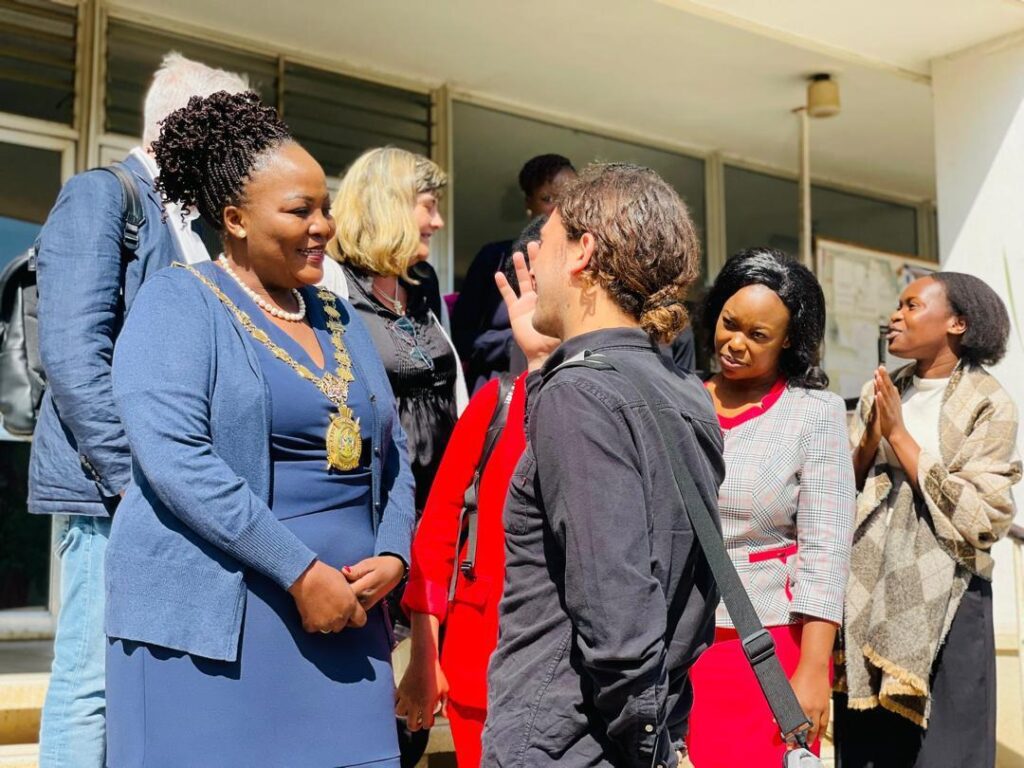
A year of impact in transforming urban food systems
In 2024, the AfriFOODlinks project worked with cities, researchers, youth, and entrepreneurs to drive real change by building a powerful network, launching innovative pilot projects, and strengthening city governance. Discover how the project plans to build on this momentum in 2025, scaling solutions and driving even greater impact across Africa and Europe.
